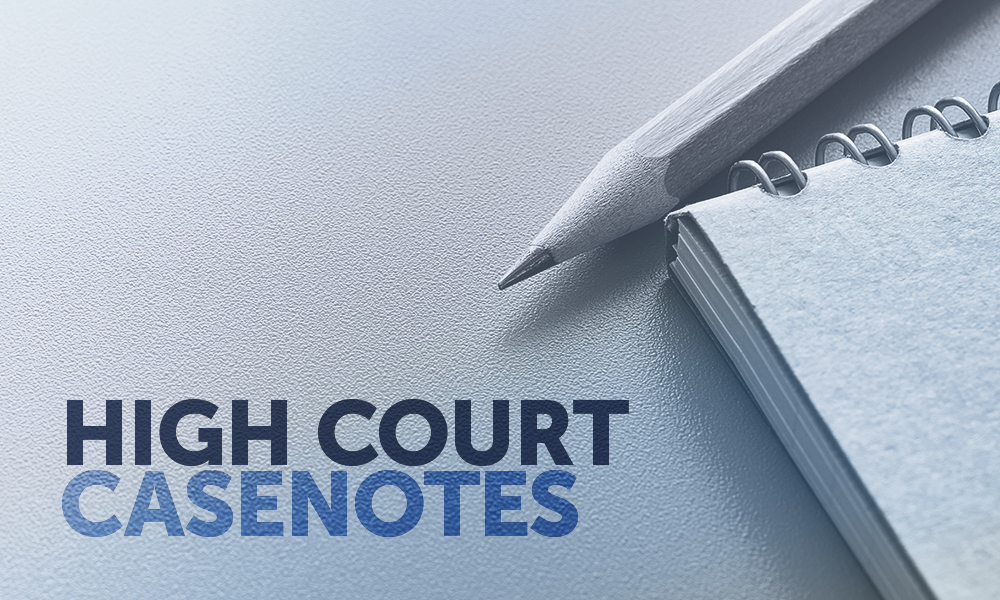In Hill v Zuda Pty Ltd as Trustee for the Holly Superannuation Fund & Ors [2022] HCA 21 (15 June 2022), the High Court was required to determine, as a matter of statutory construction, whether reg 6.17A of the Superannuation Industry (Supervision) Regulations 1994(Cth) (regulations) – made under the Superannuation Industry (Supervision) Act 1993 (Cth) (Supervision Act) – applied to a self-managed superannuation fund (SMSF).
Zuda Pty Ltd (Zuda) is the trustee of an SMSF known as the Holly Superannuation Fund (fund), which was created by a trust deed dated 14 June 2000. Alec Sodhy and his de facto partner Jennifer Murray were each a member of the fund and a director of Zuda. The applicant (Hill) is the only child of Mr Sodhy.
In 2011 the trust deed was amended to insert a clause described as a “binding death benefit nomination” (BDBN). The BDBN provides that if either Mr Sodhy or Ms Murray died, Zuda was required to distribute the whole of the deceased member’s balance in the fund to the surviving member.
Mr Sodhy died in 2016. Hill commenced proceedings in the Supreme Court of Western Australia seeking declaratory and injunctive relief against Zuda, on the basis that the BDBN failed to comply with reg 6.17A of the regulations.
The Supreme Court (Sanderson M) held that reg 6.17A did not apply to an SMSF and dismissed Hill’s application. Hill appealed, without success, to the Court of Appeal of the Supreme Court of Western Australia (Buss P, Murphy and Mitchell JJA). The Court of Appeal also held that reg 6.17A did not apply to an SMSF, and dismissed Hill’s appeal.
In reaching this conclusion, the Court of Appeal relied on the decision of the Full Court of the Supreme Court of South Australia in Cantor Management Services Pty Ltd v Booth (2017) 16 ASTLR 489. The Court of Appeal noted that the Full Court had in “seriously considered dicta” expressed the view that reg 6.17A did not apply to an SMSF.
The Court of Appeal, citing the reasoning in Farah Constructions Pty Ltd v Say-Dee Pty Ltd (2007) 230 CLR 89, considered that it was bound to follow the Full Court’s view unless convinced that the view was “plainly wrong” – which it was not.
The High Court unanimously dismissed Hill’s appeal and delivered its reasons in a single judgment. The High Court, at [4], held that the Court of Appeal was right to decide that reg 6.17A did not apply to an SMSF, but considered that the Court of Appeal could have reached that conclusion by construing the legislation for itself.
The High Court, at [25] and [26], set out the decision-making principles enunciated in Farah Constructions. The High Court, at [26], held that intermediate appellate courts are not bound to follow the obiter dicta of other intermediate appellate courts, “although they would ordinarily be expected to give great weight to them”.
As to the substantive question, the High Court observed, at [27]-[33], that the relevant parts of reg 6.17A – regs 6.17A(2) and 6.17A(4) – were made for the purposes of s59(1A) of the Supervision Act. And s59(1A) of the Supervision Act, the High Court noted at [12], operated as an exception to s59(1), and s59(1) expressly provides that it does not apply to a SMSF.
Dr Michelle Sharpe is a Victorian barrister practising in general commercial, real property, disciplinary and regulatory law, 03 9225 8722, email msharpe@vicbar.com.au. The full version of these judgments can be found at austlii.edu.au.














Share this article